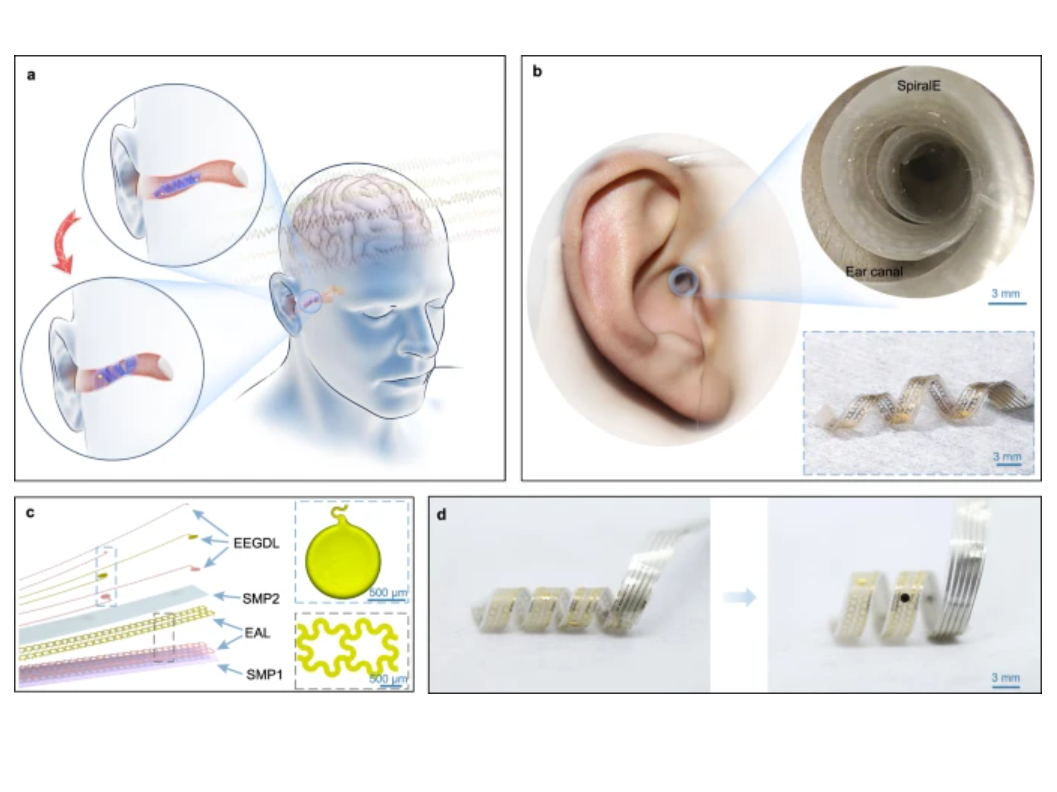Scientists build brain-computer interface that connects via the ear canal
Novel method connects people to computers without need for surgery

Researchers in China have invented a device that can connect people’s brains to a computer via their inner ear.
The SprialE brain-computer interface (BCI), developed by a team from Tsinghua University in Beijing, uses a flexible in-ear material to establish a digital connection to the brain.
It follows recent advances into BCI technology, which has seen company’s like Elon Musk’s Neuralink test brain chips capable of reading the minds of pigs and monkeys. Ultimately, the technology could offer “full-bandwidth data streaming” to the brain.
Unlike Neuralink’s device, the latest invention does not require surgery or other microneedle-based invasive methods to install, which the scientists claim make it suitable for daily use.
Current methods of connecting BCIs via the ear involve support systems like earplugs or 3D printed attachments, however the spiral design means it can be slid in and out without blocking the wearer’s hearing.
“The hollowness of SpiralE ensures that all subjects could hear audio stimuli in the outside world in real time,” the researchers noted, adding that its unique structure demonstrates that “natural and discreet wearable electronics can be integrated into real-life applications.”
The research was detailed in a study, titled ‘Conformal in-ear bioelectronics for visual and auditory brain-computer interfaces’, was published in the scientific journal Nature Communications.

The technology could allow applications like translating thoughts into text, control digital objects with thought alone, or even augmenting human memory.
A 2019 report from the Royal Society said the technology had the potential to “transform medicine and fundamentally change how we interact with technology and each other”, however it warned that BCIs raise critical ethical concerns relating to privacy and human rights.
“Neural and brain-computer interfaces may challenge the very essence of what it is to be human,” the report stated.
“Working out how, and even if we want to use them requires an open and inclusive debate involving many voices and all sectors of society.”
Join our commenting forum
Join thought-provoking conversations, follow other Independent readers and see their replies
Comments
Bookmark popover
Removed from bookmarks